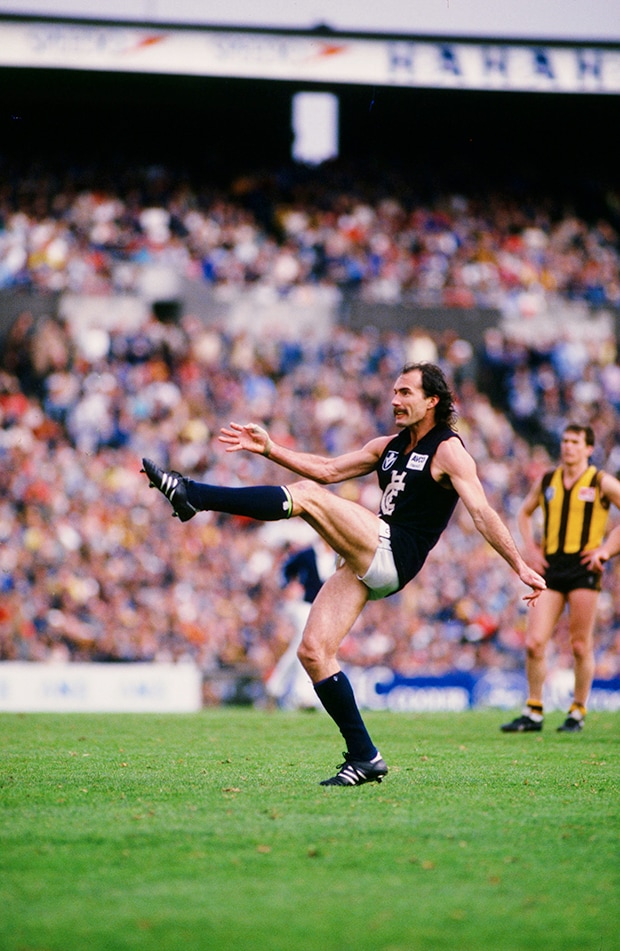Ken Hunter was a magnificent footballer.
There wasn't much to him physically, and with his jumper hanging out of his shorts and his socks perennially around his ankles, he didn't look the part.
But boy, could he play. He was a magnificent half-back flanker for Carlton, a natural at VFL level from his very first game in 1981 after crossing from Claremont.
But Hunter belied his light frame by being as tough as they came. He would be thrown around like a ragdoll seemingly every week, but would get up, gather his senses and move on to the next contest.
Carlton supporters adored him; opposition supporters wished he played for them and in the tribal 1980s that was high-praise indeed. He was part of three Carlton premierships teams and if he didn't make the VFL team of the 1980s, he came awfully close.
Yet, in a remarkable interview for a recently released book, Hunter has spoken at length about the battle with depression that he fought less than 12 months after playing in Carlton's 1987 premiership team.
Hunter told writer Matt Zurbo in his book Champions All that the issue started when Robert Walls took some experienced players to task for breaking a no-nonsense rule and then rebuked Hunter when the half-back called out for being too harsh.
Within a few weeks Walls and Hunter weren’t talking, and then the player was dropped to the reserves. "I got dropped at 32," Walls told Hunter. "See how you handle it."
Hunter was forced to train with the reserves on the oval outside Princes Park. Then he had trouble sleeping and was soon on medication. "I had no idea what depression was. I thought I was going insane."
Hunter ended the 1988 season in the reserves and after the last game of the season he had to be restrained from ripping off his Carlton jumper and throwing it into the crowd. He ended up being admitted to a hospital in Queensland, a development the club covered up by saying he had injured a hamstring.
As the Blues prepared for their preliminary final against Melbourne, Hunter was walking the streets of the Gold Coast. "I didn't know what I was capable of doing to myself if this thing I couldn't see or touch stopped me from playing in a Grand Final. I couldn't handle it. Then they lost."
Hunter told Zurbo that he thought the Blues not making the Grand Final might help his condition, but that made things worse and his health only started to improve later that summer after a renewed push to take the correct medication. He played his final season with the Blues in 1989.

Ken Hunter in action during the 1987 VFL grand final. (Photo: AFL Media)
"I remembered as a kid, when someone had a mental illness people would always go, 'Shh, shh'," Hunter said. "I don't want to be seen like that. I'm not ashamed at what happened."
"I want people to know it's not just strangers on the street it happens to. Depression can hit anyone, it's nothing to be ashamed of. You can come out of it as a better person. It's bigger than football.
At a time when more young players than ever are walking away from the game because the demands are too great, Hunter's words are a reminder that this is not a new phenomenon in football and that even when it was a part-time, semi-professional pursuit for the players, the demands were great and the pressure enormous.


